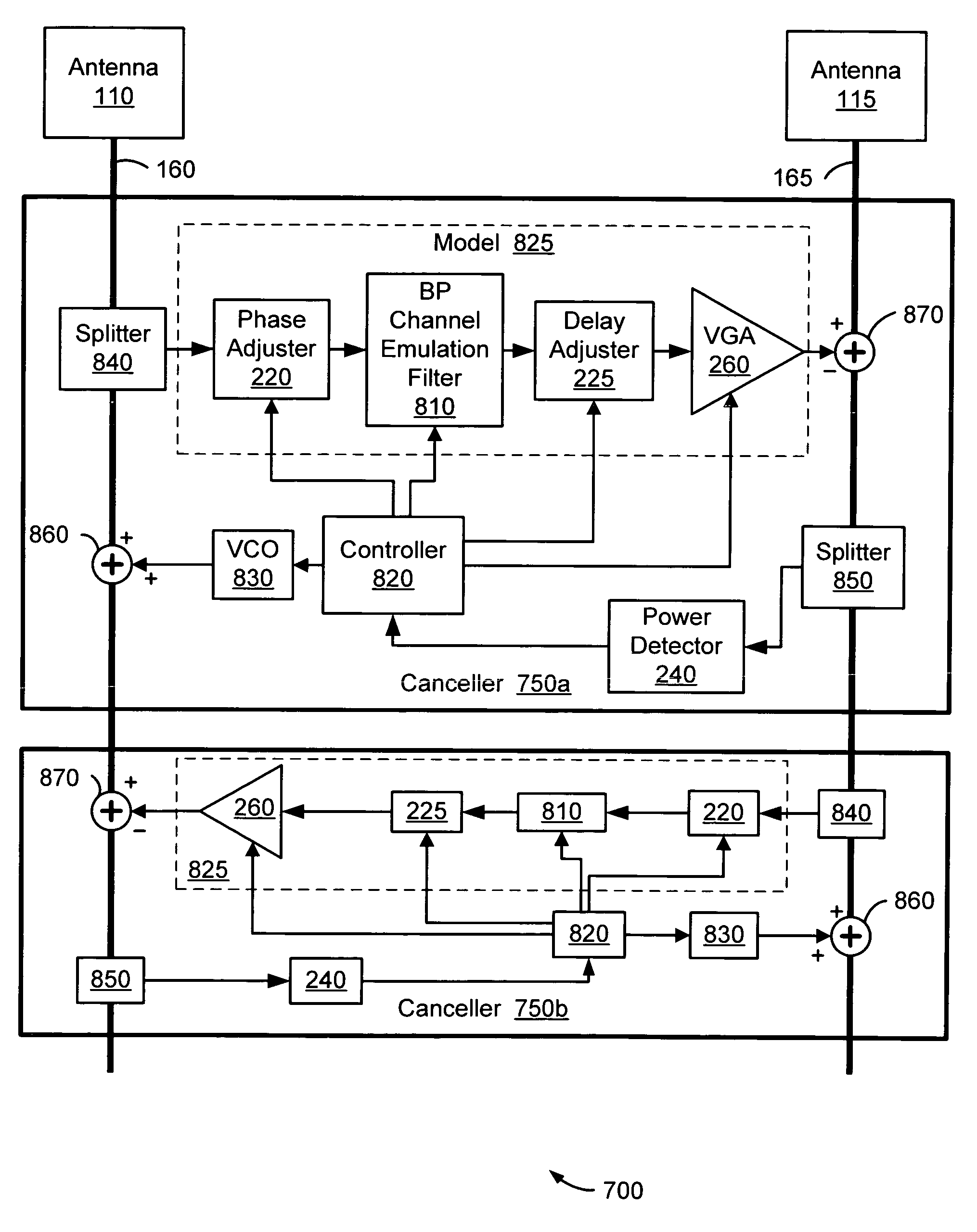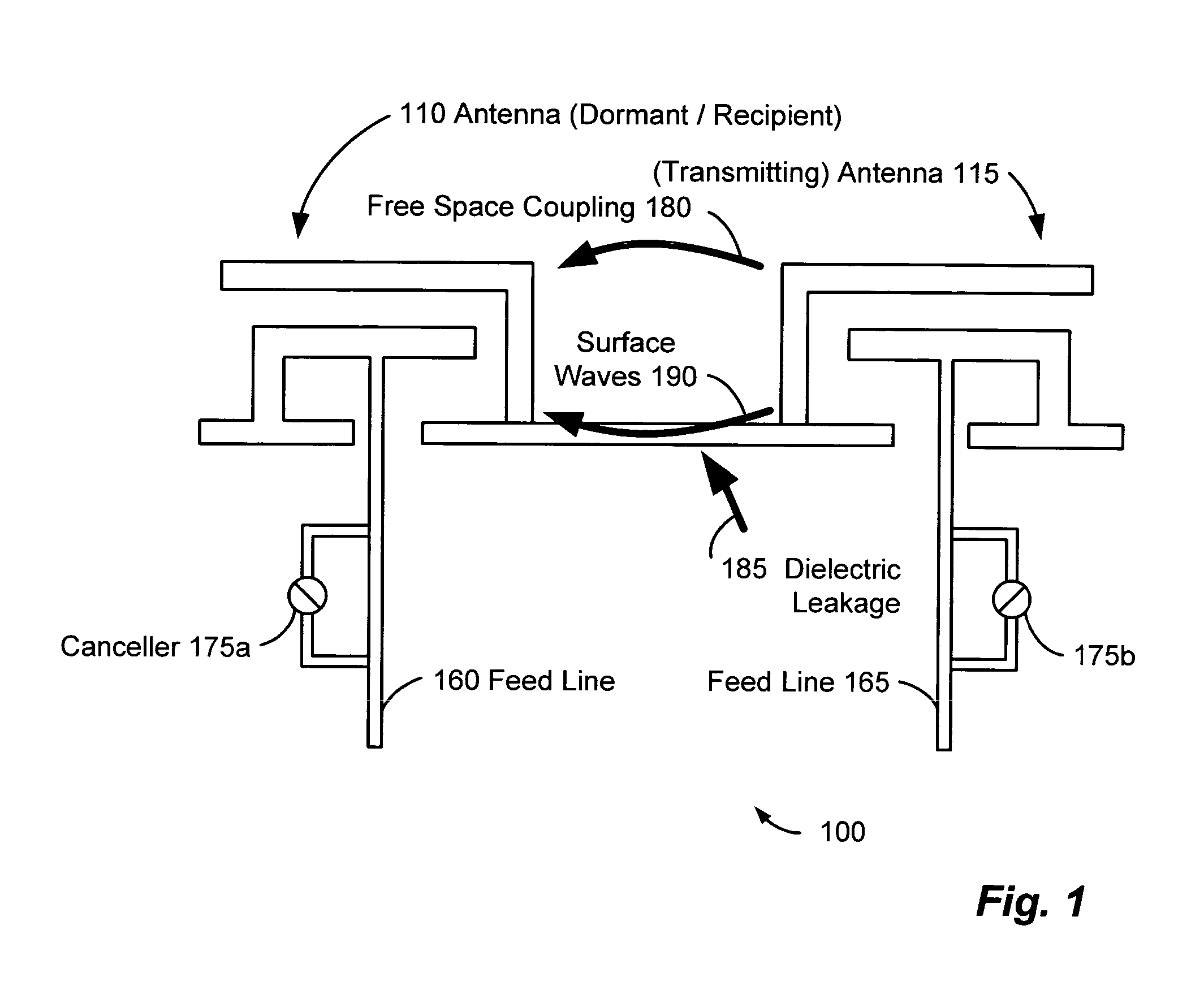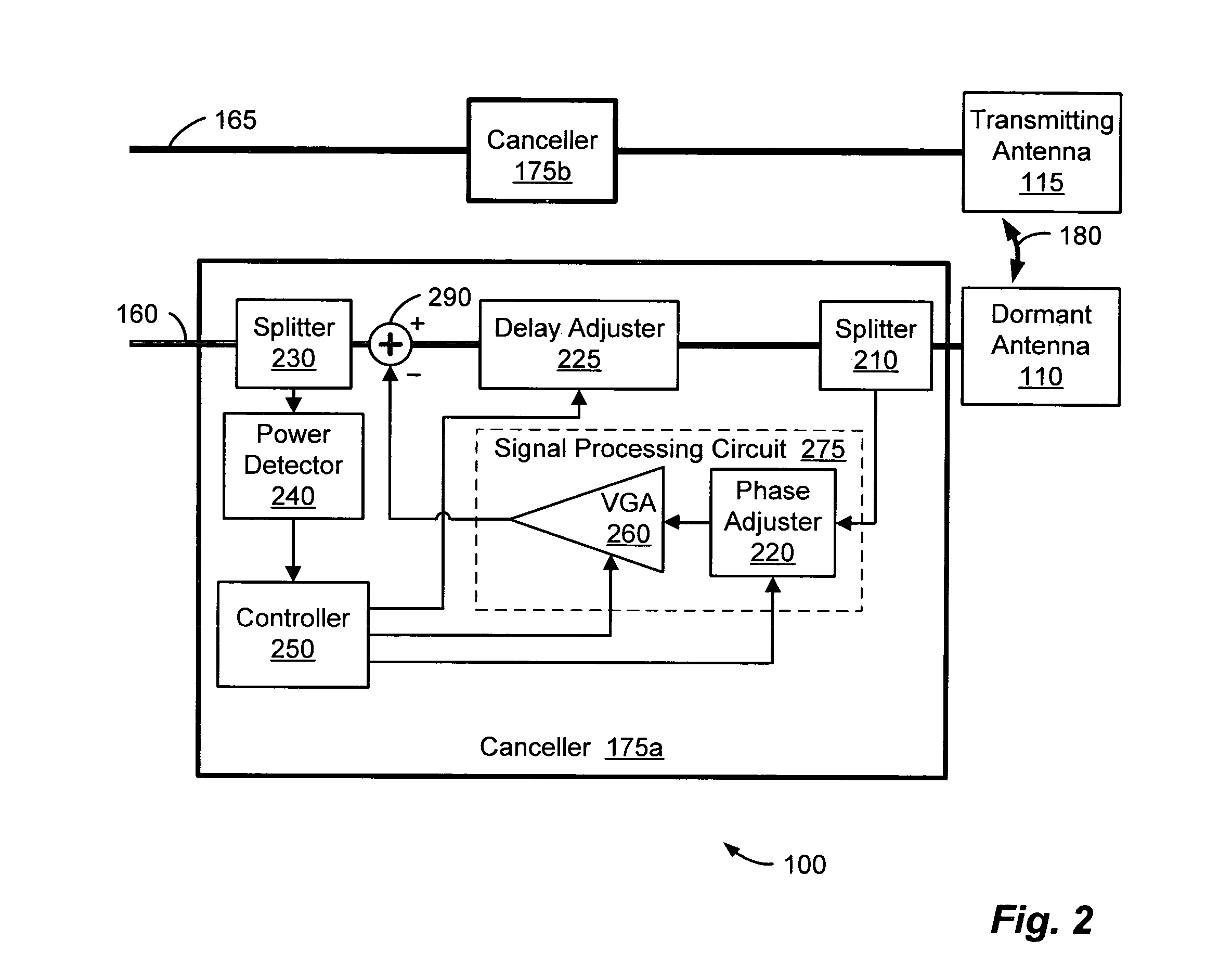Method and system for antenna interference cancellation
a technology of antenna interference and cancellation method, applied in the field of wireless communication, can solve the problems of reducing the performance of either or both antennas, limiting bandwidth, and degrading signal fidelity, so as to enhance bandwidth or information carrying capacity, improve signal quality, and improve signal quality
- Summary
- Abstract
- Description
- Claims
- Application Information
AI Technical Summary
Benefits of technology
Problems solved by technology
Method used
Image
Examples
first embodiment
[0119]Exemplary embodiments of the system 700 can provide interference cancellation in three operational states. In one embodiment, the system 700 operates in a diversity antenna application, whereby the antenna 115 is dormant and the antenna 110 is actively transmitting. In such a diversity application, the canceller 750a can cancel crosstalk imposed on recipient antenna 115 without using pilot signals to characterize the coupling channel. Thus, this first embodiment can correspond to the modes of operation of the system 100 illustrated in FIGS. 1 and 2 and discussed above.
second embodiment
[0120]In a second embodiment, the system 700 operates with the antenna 115 and the antenna 110 operating at distinct frequencies. In this scenario, the communication signals transmitting on the antenna 110 couple onto the antenna 115 via a coupling channel. The canceller 750a injects two pilot signals onto the antenna 110, which couple onto the antenna 115. One of these pilot signals has a frequency above the operating frequency of antenna 115, while the other pilot signal has a frequency below the operating frequency of the antenna 115. The canceller uses these pilot signals to address the interference.
[0121]In the third embodiment, the canceller 750 cancels crosstalk occurring with the antenna 110 and the antenna 115 operating at essentially the same frequency. The third exemplary embodiment will be discussed in detail. Those skilled in the art will appreciate the applicability of the discussion to the second embodiment described in the immediately preceding paragraph.
[0122]With t...
PUM
 Login to View More
Login to View More Abstract
Description
Claims
Application Information
 Login to View More
Login to View More - R&D
- Intellectual Property
- Life Sciences
- Materials
- Tech Scout
- Unparalleled Data Quality
- Higher Quality Content
- 60% Fewer Hallucinations
Browse by: Latest US Patents, China's latest patents, Technical Efficacy Thesaurus, Application Domain, Technology Topic, Popular Technical Reports.
© 2025 PatSnap. All rights reserved.Legal|Privacy policy|Modern Slavery Act Transparency Statement|Sitemap|About US| Contact US: help@patsnap.com



